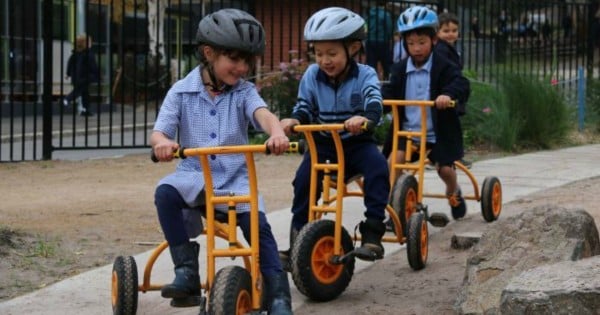
An online campaign is building in resistance to the Tasmanian Government’s plans to lower the school starting age from the year children turn five to three-and-a-half.
The changes to the Education Act will be debated by Parliament in a few months and implemented in 2020.
There are claims the plan has not been well thought out and academic evidence is being ignored but the Government said the opposite was true.
Education Minister Jeremy Rockliff said the change would combat high levels of disadvantage and low levels of educational attainment.
But this was refuted by Jannette Armstrong, a union representative for childcare workers and the creator of a social media page campaigning against the reforms.
Ms Armstrong believes increasing support for disadvantaged families would be more beneficial.
“They’ll be potentially labelled earlier as troublesome or failing and earlier they get this sense of you know what, school’s not for me and that will stay with them forever,” she said.
But Tasmania’s Children’s Commissioner Mark Morrissey said the change could help disadvantaged children.
“The reality is that Tasmania has far too many children and young people not receiving rich play-based developmental opportunities that will be critical to them living successful lives,” he said.
Mr Rockliff said overseas and national research showed quality early learning was key to improving educational outcomes.



Top Comments
A lot of kids are in full time day care from that age anyway - how's this different except that it's now free for parents. Might allow mums to go back to full time work much earlier.
So then we have children finishing high school as young as 16?
Then what do they do? Is anyone thinking about the other end of schooling? Or do they have 2 extra years in school?
Pretty sure it's just 2 extra years at the start